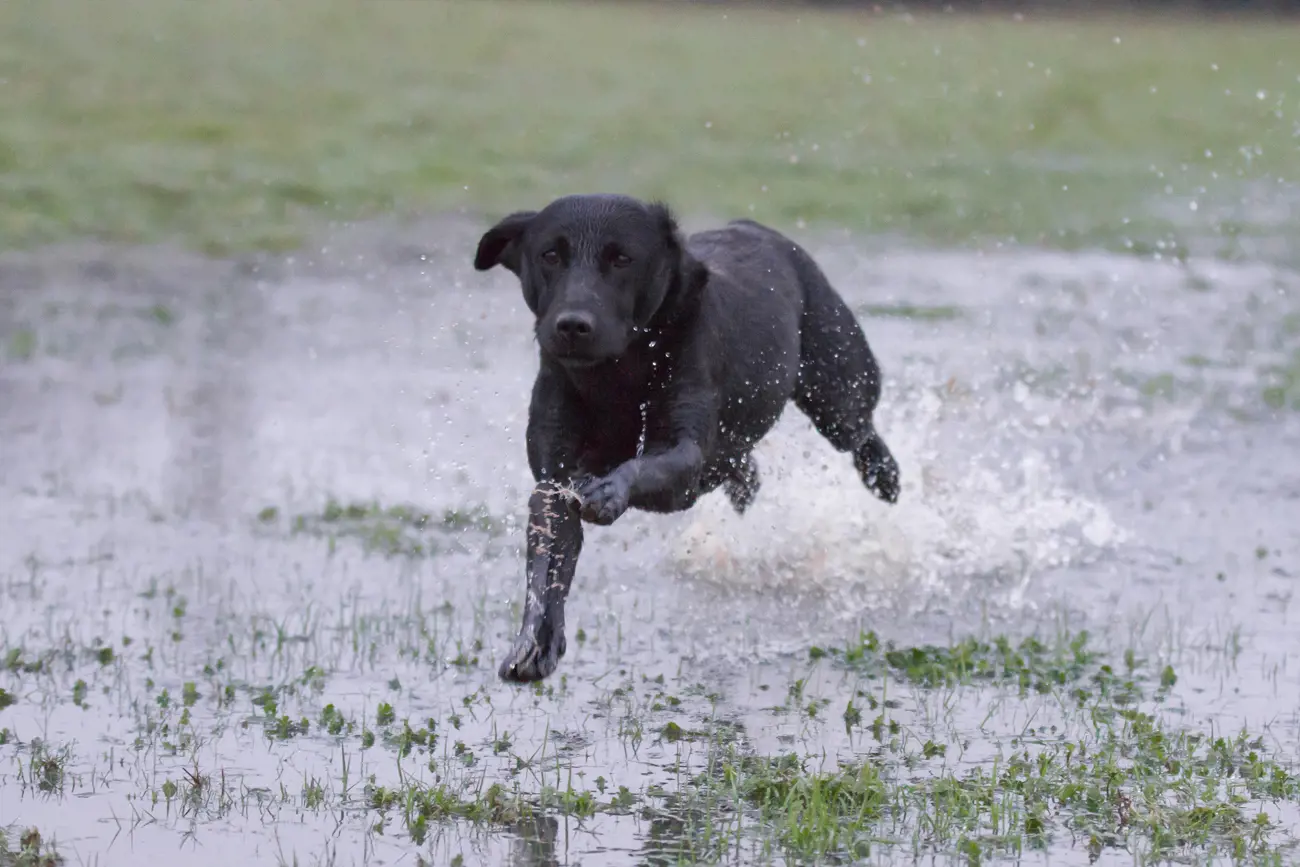Vets issue warning for dog owners over blue-green algae
1st September, 2020

Dog owners have been warned to take extra precautions when walking their dogs near stretches of water, after an increase in reports of toxic blue-green algae in several locations across the UK this summer.
Blue-green algae is a term used to describe a group of bacteria, called cyanobacteria, containing dangerous toxins that can be harmful and even fatal to pets, livestock and birds if ingested even in small quantities.
Dogs can become seriously ill after drinking or swimming in algae-contaminated water. Common symptoms of exposure include vomiting, diarrhoea, drooling, disorientation, trouble breathing and seizures, and if left untreated it can cause liver damage and be rapidly fatal. Make sure you have that added peace of mind by insuring your pet with dog insurance.
Symptoms can appear within a few minutes or hours, depending on the type of toxin ingested, according to the British Veterinary Association (BVA).
Blue-green algae can look like blue-green or brown scum on the surface of a lake, river or pond. Blooms of the organisms often build up around the edges of ponds and lakes, and may look like foam.
However, the algae may be present in a harmful form even if you cannot see it, so take note of any warning signs in the area.
The BVA recommends keeping your dog on a lead and by your side around water bodies known or suspected to have blue-green algal bloom — don’t let them swim in it or drink from it.
If your dog has been swimming outside, wash it thoroughly with clean water afterwards. And if you’re concerned that your dog may have ingested toxic algae, seek emergency veterinary treatment.
“We know that some dogs enjoy nothing better than a paddle in a cool lake while on a walk, but we’d urge pet owners to keep their dog on a lead during walks near water confirmed to have toxic algal blooms,” said BVA president Daniella Dos Santos. “While not all blue-green algae are poisonous, it is impossible to tell the difference visually, so it is better to be safe than sorry.
“There is currently no known antidote for the toxins, so prompt veterinary treatment is the only way to tackle their effects and ensure a good chance of recovery for your pet. If you suspect your dog has been exposed to blue-green algae, seek emergency veterinary treatment as soon as possible.”
Specialist insurance from Purely Pets will help pay the vets’ bills if your dog is unwell or injured. We offer 15 cover levels, giving you the freedom to choose the right level of cover for you and your dog, so why not get a quote today?
Helpful Pages
Recent Posts

Why do Pugs lick the air?
02/10/24Pet Insurance Quote
- 98% claims paid *
- Claims paid directly to vets
- 24/7 vet video consultations
- Interest free monthly payments



